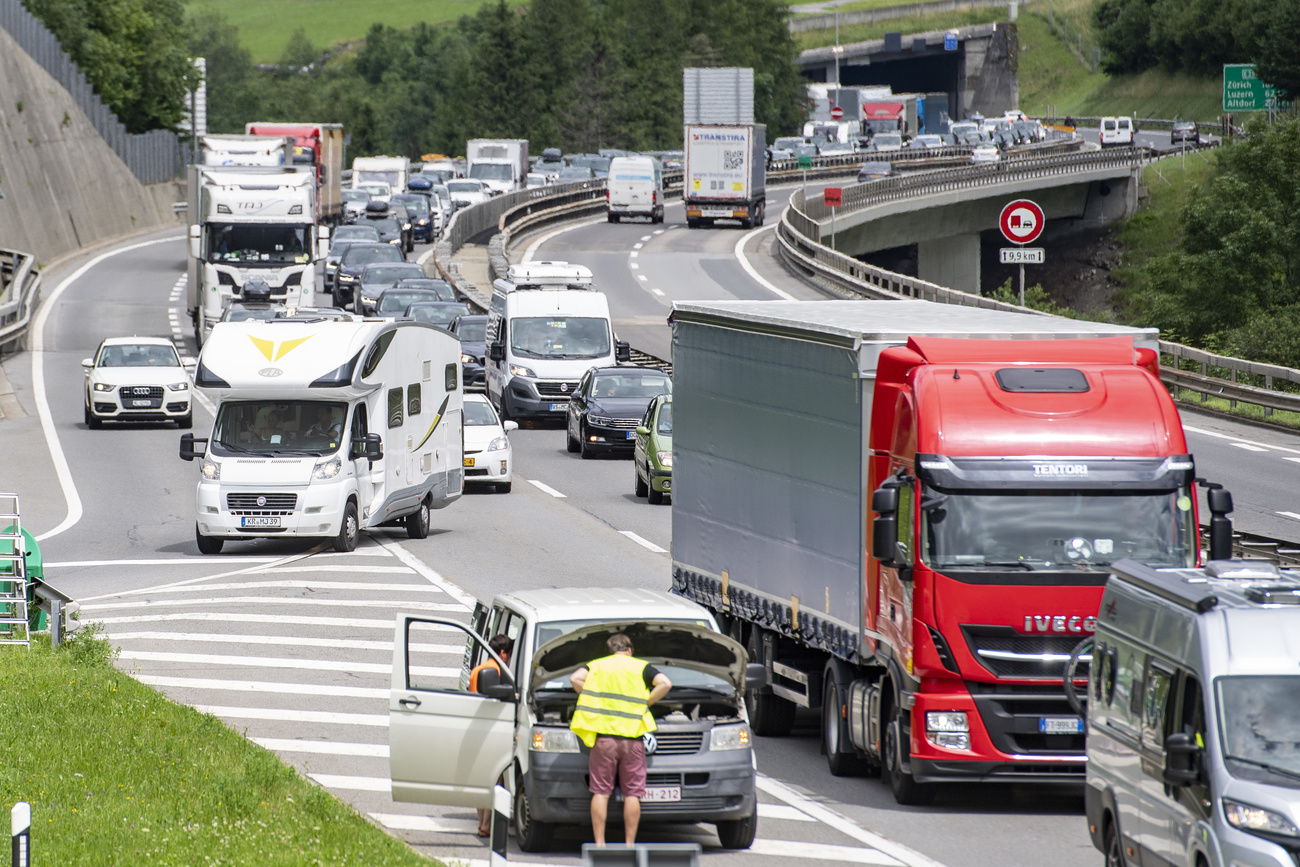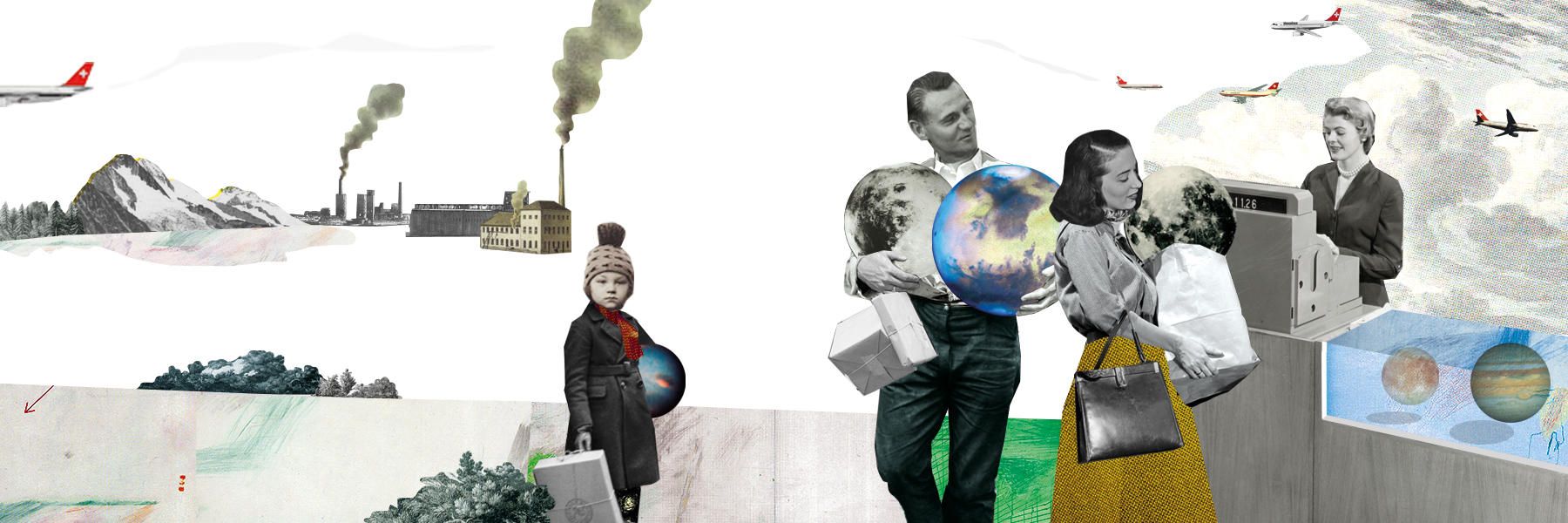
CO2 penalties for new vehicles ‘have limited effectiveness’

CO2 penalties for new cars and vans – intended to result in the importing of low-emission vehicles – create false incentives and have only limited effectiveness, according to a government report.
In 2020 road traffic accounted for around 40% of Switzerland’s total CO2 emissions, the Swiss Federal Audit Office (SFAO) said in a reportExternal link published on Wednesday.
Individually calculated emission ceilings are set for imported vehicles, it explained. If the value is exceeded, a penalty is imposed. The penalty amounts paid have risen sharply since 2018, totalling CHF28 million ($31.5 million) in 2021.
In some areas, measures are counterproductive, it concluded. For example the use of the vehicle weight as a basis for calculation, which incentivises importing heavier vehicles. “Moreover, there is a lack of effective and necessary incentives aimed at consumers,” it said.

More
Swiss think it’s vital that other people reduce CO2 emissions
Penalty too low
The report noted that Switzerland had set the level of the penalty in line with that of the European Union, “which at least means that the Swiss market is not more attractive than its European neighbours to importers of high-emission vehicles”.
But is also means that the measure has only a limited impact on demand. The SFAO found that the associated penalty is too low. “Owing to the high purchasing power in Switzerland compared to other countries, importers are able to pass the penalty on to the consumer,” it said.
A glance at Switzerland’s European neighbours also shows that, in successful countries, the measure is supplemented with incentives for the consumer. “One-off registration fees or emissions-based increases in motor vehicle tax are appropriate in this context,” it recommended. In Switzerland, similar measures are applied in only a few cantons and to a lesser extent.

More
Swiss CO2 emissions: Small country, big footprint

In compliance with the JTI standards
More: SWI swissinfo.ch certified by the Journalism Trust Initiative





























You can find an overview of ongoing debates with our journalists here . Please join us!
If you want to start a conversation about a topic raised in this article or want to report factual errors, email us at english@swissinfo.ch.